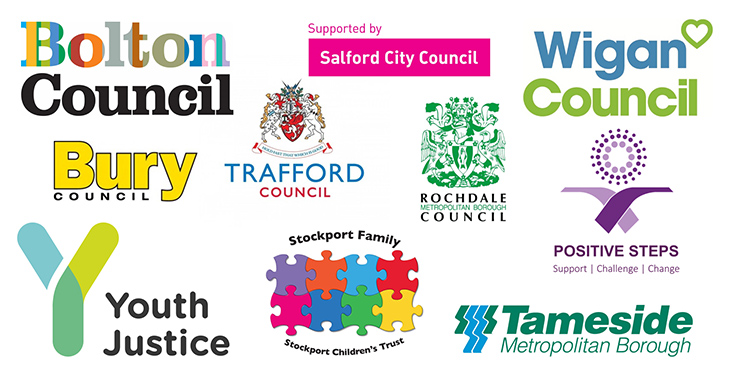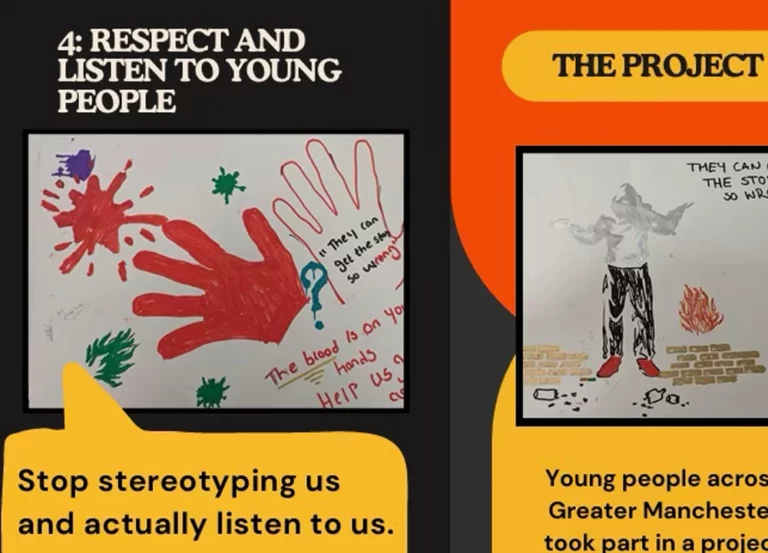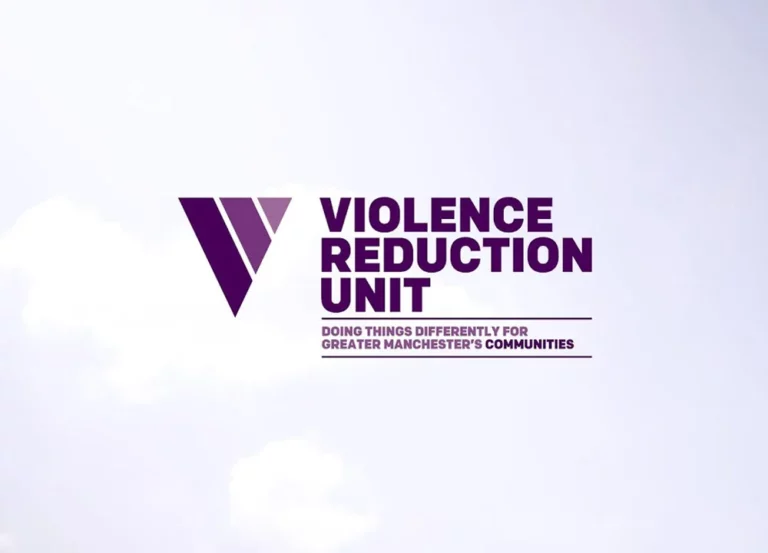
Youth Justice Knowledge Transfer Partnership (KTP)
Our Knowledge Transfer Partnership is the first of its kind in the field of youth justice, and was also a first for Manchester Met’s Faculty of Humanities Languages and Social Sciences (now part of the Faculty of Art & Humanities).
Worth close to £120,000 in funding from the Arts & Humanities Research Council and the Economic & Social Research Council, and part funded by YJS, the project sets out to transform the youth justice landscape in Greater Manchester.

Hannah Smithson, Professor in Criminology and Youth Justice at Manchester Met and the lead academic on the project, said:
“The KTP is the first of its kind in the field of youth justice, set up to facilitate the bi-directional transfer of information between academia and practice, the project has the potential to transform the youth justice landscape”
Paul Axon, Head of Targeted Services for Positive Steps, said
“The development of the KTP has been a crucial element of developing evidence based youth justice practice in Greater Manchester. This is a unique and rewarding opportunity to ensure that young people, practitioners, academics and policy makers are working in collaboration to improve the lives of those involved in the criminal justice system.”
Fiona Nightingale, KTP Advisor for Innovate UK, said:
“This KTP has developed novel approaches to engagement that are being adopted and embedded throughout GMYJUP. The KTP is an exemplar of an excellent partnership, which has resulted in significant benefits- not only for GMYJUP, the University and the Associate, but also for the young people supported by GMYJUP”
What are Knowledge Transfer Partnerships?
Knowledge Transfer Partnerships (or KTPs) are Europe’s leading programme helping businesses to improve their competitiveness by enabling companies to work with higher education or research and technology organisations to obtain knowledge, technology or skills which they consider to be of strategic, competitive importance. The UK-wide programme is overseen by Innovate UK, the UK’s innovation agency, and supported by 16 other publicly-funded organisations
Innovate UK is the UK’s innovation agency. It works with people, companies and partner organisations to find and drive the science and technology innovations that will grow the UK economy. For further information, visit www.innovateuk.gov.uk
Who are our funders?
Our KTP has been jointly funded by the Arts & Humanities Research Council, the Economic and Social Research Council and the Greater Manchester Youth Justice Services. More information on our funders can be found below:
The Arts and Humanities Research Council (AHRC) funds world-class, independent researchers in a wide range of subjects: ancient history, modern dance, archaeology, digital content, philosophy, English literature, design, the creative and performing arts, and much more. This financial year the AHRC will spend approximately £98m to fund research and postgraduate training in collaboration with a number of partners. The quality and range of research supported by this investment of public funds not only provides social and cultural benefits but also contributes to the economic success of the UK.
For further information on the AHRC, please go to: www.ahrc.ac.uk or on Twitter @ahrcpress
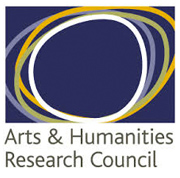
The Economic & Social Research Council is the UK’s largest organisation for funding research on economic and social issues. They support independent, high quality research which has an impact on business, the public sector and civil society. Their total budget for 2017-18 is around £202 million, and at any one time they support over 4,000 researchers and postgraduate students in academic institutions and independent research institutes. Their research is rigorous and authoritative, as they support independent, high-quality, relevant social science.
For further information on the ESRC, please go to: www.esrc.ac.uk or on Twitter @ESRC
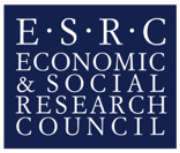
Greater Manchester Youth Justice Services are working together to deliver first-class services to young people, victims, families and communities involved in the criminal justice system.
The group comprises of ten local authority areas each individually responsible for statutory delivery of youth justice, including safeguarding and protection of the public. The strategic aims are to reduce reoffending, first time entrants into the criminal justice system and the use of custody in line with the objectives of the Youth Justice Board and Ministry of Justice. This work also addresses issues specific to Greater Manchester and is informed by academic research.
This collaborative approach is supported by the Youth Justice Board, Ministry of Justice and Greater Manchester Mayor’s Office.
